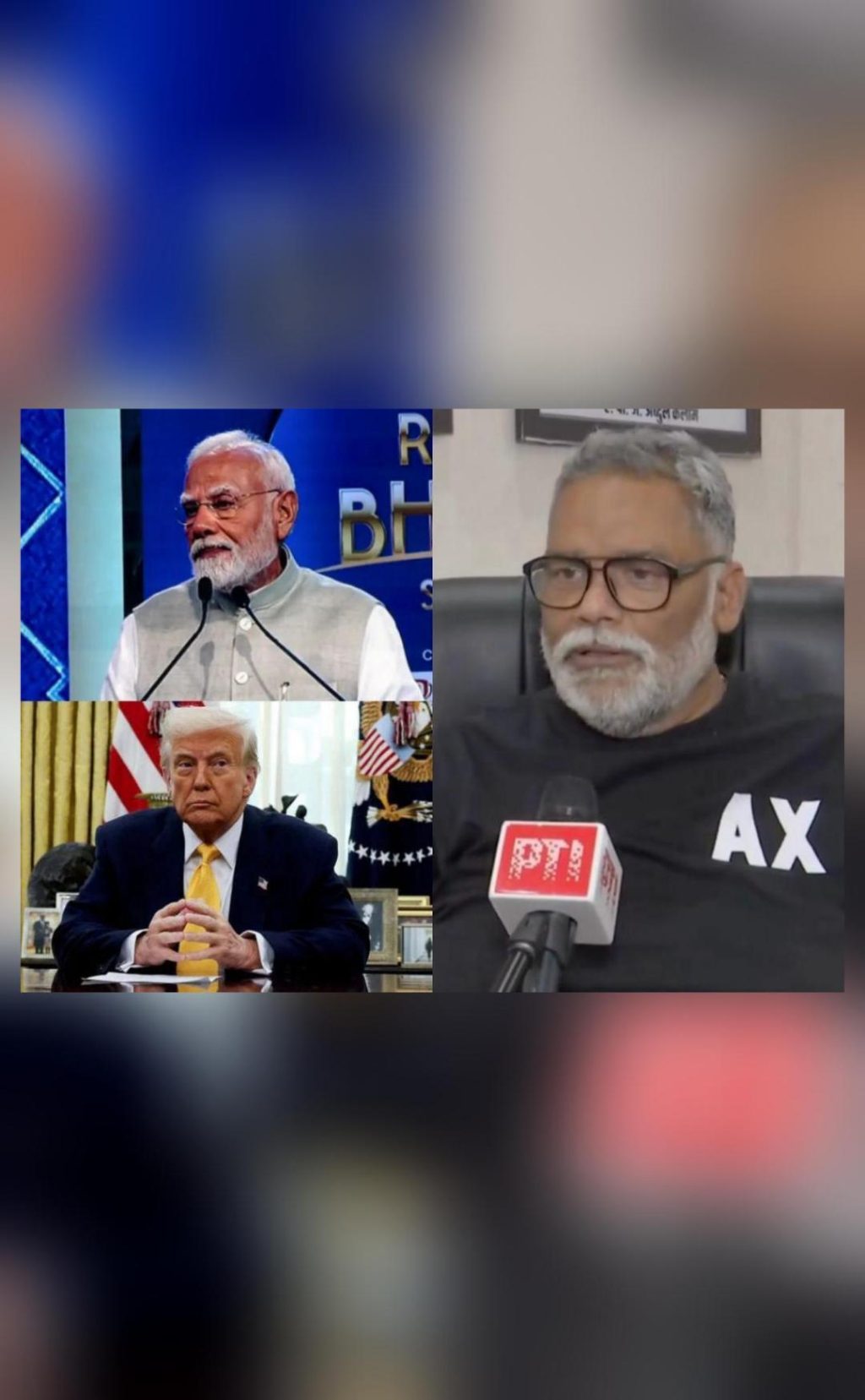
PM Modi calls Trump his friend & he insults India: MP Pappu Yadav
In a recent turn of events, Purnia MP (Independent) Pappu Yadav has sparked controversy by criticizing Prime Minister Narendra Modi’s relationship with US President Donald Trump. Yadav’s statement comes after Trump again claimed that he brokered a ceasefire between India and Pakistan. The Independent MP has questioned the Prime Minister’s decision to call Trump a friend, citing the latter’s repeated insults towards India.
Yadav’s comments were made in response to Trump’s recent claims that he played a crucial role in de-escalating tensions between India and Pakistan. However, the US President’s words have been met with skepticism by many in India, who argue that the ceasefire was a result of diplomatic efforts by the Indian government.
In a strongly worded statement, Yadav accused the Prime Minister of being intimidated by the United States and China, and of prioritizing his personal relationship with Trump over the interests of the country. “PM Narendra Modi himself calls Trump a friend, and he is insulting India again and again,” Yadav said. “He is our enemy, and we are calling him friend. Why are we intimidated by the US and China?”
Yadav’s comments have sparked a heated debate in India, with many questioning the Prime Minister’s handling of the country’s relationship with the United States. Some have argued that Modi’s strong personal rapport with Trump has led to a foreign policy that prioritizes bilateral ties over regional and global interests.
The issue is particularly sensitive given the recent tensions between India and Pakistan. The two countries have been locked in a bitter standoff over the Kashmir region, which has seen multiple instances of violence and border skirmishes. Trump’s claims of brokering a ceasefire have been seen by many as an attempt to insert himself into the region’s complex politics.
Yadav’s criticism of the Prime Minister’s relationship with Trump is not unprecedented. In the past, the Independent MP has been vocal about his opposition to the Prime Minister’s foreign policy, and has questioned the government’s decision to sign the Rafale deal with France.
The Rafale deal has been embroiled in controversy, with many arguing that the government’s decision to purchase 36 Rafale jets from France at a cost of around 59,000 crores was unfair to the Indian taxpayer. The deal has also been criticized for allegedly benefiting businessman Anil Ambani, who owns the Reliance Group.
Yadav’s criticism of the Prime Minister’s relationship with Trump has also been met with criticism from some quarters. Many have argued that the Independent MP’s comments were motivated by petty politics and a desire to gain attention.
However, Yadav’s views have also been supported by many who feel that the Prime Minister’s handling of the country’s relationship with the United States has been inadequate. The US has been increasing its military presence in the region, and has been critical of India’s purchasing of Russian military equipment.
In recent times, the US has also been critical of India’s decision to purchase the S-400 air defense system from Russia. The system has been sanctioned by the US, and Washington has warned that any country that purchases the system will face consequences.
Yadav’s comments have also sparked a debate about the role of the US in the region. Many have argued that the US has been increasing its military presence in the region, and that it is trying to create a new Cold War-style divide between India and Pakistan.
In conclusion, Pappu Yadav’s criticism of the Prime Minister’s relationship with Trump has sparked a heated debate in India. While some have questioned the Prime Minister’s handling of the country’s relationship with the United States, others have criticized Yadav’s comments as motivated by petty politics.
As the situation continues to unfold, it is clear that the relationship between India and the United States is complex and multifaceted. While the two countries share many common interests and values, their relationship is also marked by a degree of tension and mistrust.
As India navigates this complex relationship, it is essential that the country’s leaders prioritize its national interests and take a more nuanced approach to its dealings with the United States. The country’s relationship with the US is critical to its economic and strategic interests, but it is also essential that the country’s leaders do not compromise on its sovereignty and territorial integrity.






